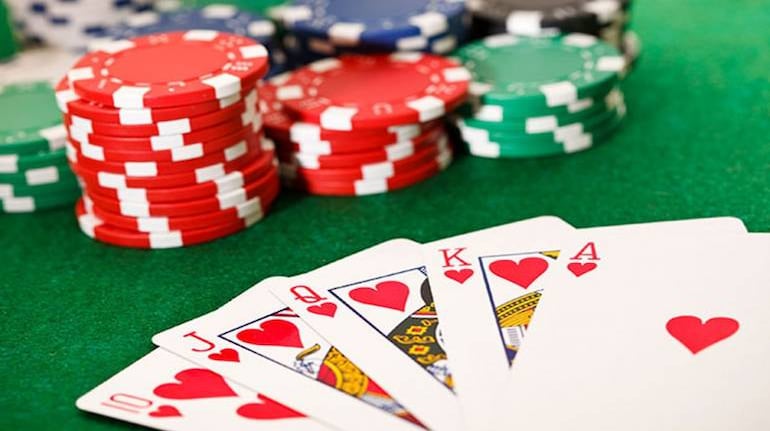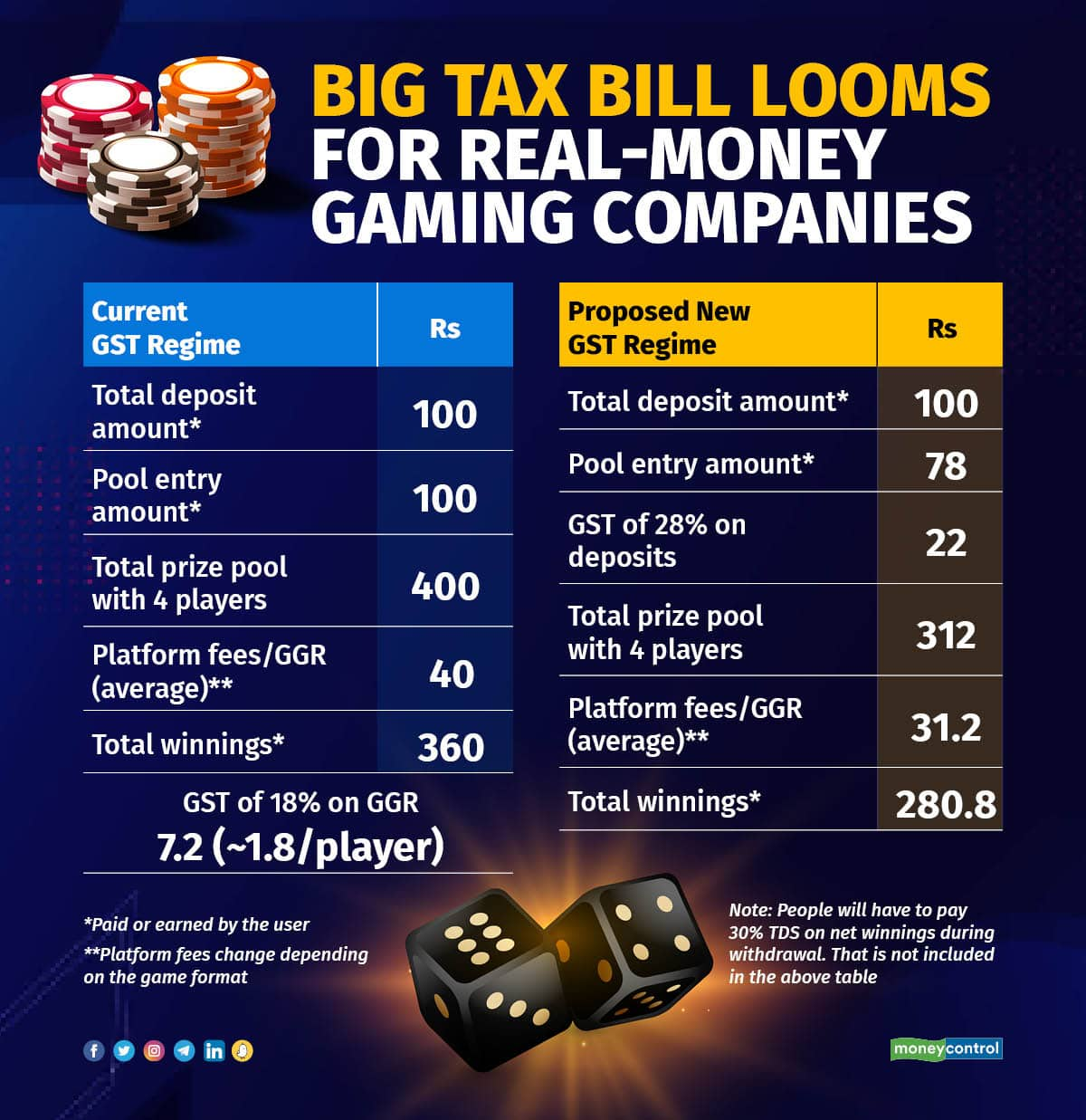



The Goods and Services Tax (GST) Council's proposal to levy a 28 percent tax on player deposits in real-money games has caused quite a stir in India's fast-growing skill-based gaming industry.
On August 11, the last day of the Monsoon Session, Finance Minister Nirmala Sitharaman introduced bills to amend the Central and Integrated GST laws and it was passed in the Lok Sabha. States’ legislative assemblies will now have to pass similar amendments for the new rates to come into effect. The government is aiming to implement these changes by October 1, 2023.
Industry executives and other stakeholders say the proposed rules would increase a company's tax burden by 350 to 400 percent, severely impacting the growth trajectory of the sector.
Skill gaming unicorn Mobile Premier League (MPL) recently informed employees that it will be laying off 350 employees in order to "survive and ensure that the business remains viable." Meanwhile, Kavin Bharti Mittal's Hike has cut 55 jobs.
The move will disproportionately impact smaller players, particularly startups and micro, small, and medium enterprises (MSMEs), industry stakeholders said.
Over the past month or so, several prominent skill-based gaming firms, industry associations, and investors have written to the government requesting that they reconsider the proposed tax levy and urged for a "viable and progressive GST regime."
In a letter to Prime Minister Narendra Modi, about 30 domestic and international startup investors stated that the current GST proposal would create the "most onerous tax regime for the gaming sector" in the world. They warned that it could lead to a "potential write-off" of the $2.5 billion capital invested in the sector and adversely impact prospective investments to the tune of at least $4 billion in the next 3-4 years.
On August 2, the GST Council stuck to its initial proposal of levying 28 percent GST on the full face value, irrespective of whether it is a game of skill or chance. However, it provided a partial relief by recommending that GST be levied on deposits instead of every bet placed, in order to avoid repeat taxation. The council also agreed to review this decision six months after implementation.
What are the key differences between the proposed GST levy and the current regime and who will be the most impacted?
We take a look
Platform fees vs Full face value
In the current system, skill-based gaming companies pay a 18 percent tax on the platform fees, also known as Gross Gaming Revenue (GGR). These fees are charged by the skill gaming company to allow users to participate in a game on their platform. The fees typically range between 5-20 percent of the prize pool, depending on the game format.
For example, if a person deposits Rs 100 and then plays a game of rummy with four other people, the total prize pool would be Rs 400. Of this, the winner gets about Rs 360, while the platform retains about Rs 40 (an average of 10 percent fee per player) as its fee. The platform currently pays 18 percent GST on Rs 40, which translates to about Rs 7.2.
 A comparison between the old and new GST mechanisms for skill-based gaming firms
A comparison between the old and new GST mechanisms for skill-based gaming firms
In July 2023, the GST Council recommended a 28 percent GST on the content entry amount (CEA), which would have taxed every bet placed by players.
Let's consider the same example from before. If the total prize pool was Rs 400, the GST payout would have been Rs 112. After platform fees were deducted, the winner would have received an estimated Rs 250. If they decided to use these winnings to play subsequent games on the platform, they would have to pay a 28 percent tax on every contest entry. This would mean that the same money would be taxed multiple times.
However, the revised GST Council's proposal, which is expected to be implemented from October 1, will now levy GST on the full face value of player deposits.
This means that a player who deposits Rs 100 will only receive Rs 78 in their account after a 28 percent GST deduction, which amounts to about Rs 22. Considering that players enter these platforms in the hopes of winning money, this reduction could lead to increased frustration among users, which may in turn lead to lower engagement.
One can use the funds to play games on the platform. Player winnings and company fees would not attract any GST. If a user chooses to withdraw their earnings, a 30 percent TDS would be applied to the net winnings at the time of withdrawal. Net winnings are calculated by subtracting the total withdrawals in the financial year from the sum of total deposits made in the financial year, the amount already subjected to TDS during the ongoing financial year, and the opening deposit balance as of April 1.
Who will be more impacted?
With the proposed tax changes, companies are bracing for a 30-50 percent hit to their revenues and the bottomline, industry executives told Moneycontrol.
They said the newer real-money casual gaming formats will be hit the worst by the change in the GST taxation rules.
This is because users tend to play one or two games on average and then drop out or withdraw money, unlike other formats such as card games where people tend to play multiple games with the money deposited on the platform, they added.
These games are also played for short durations, with some lasting for less than 2 minutes. They also have a smaller number of participants, with each contest ranging from 2 to 5 players, unlike fantasy sports format that have a large number of participants in each contest.
Among the prominent companies that currently offer these formats are MPL, WinZO, Zupee, Hike’s Rush Gaming Universe, and Witzeal Technologies. Quizy, a real-money quiz games platform, recently shut down, stating that the recent GST changes have thrown "significant challenges our way."
WinZO co-founder Saumya Singh Rathore said that casual gaming formats now account for about 60 percent of the real-money gaming market in India and a “vast majority” of these companies have grown only after 2021. This came after the COVID-19 pandemic-induced boom in the sector, which accelerated the growth of several companies in the country.
The new GST levy would leave these smaller startups “at risk of heavy losses and extinction" and could “eventually lead to monopolistic play,” she said.
This is because, in the casual quick continuous gameplay model, nearly 70 percent of deposits are withdrawn by the players as winnings, Rathore said. Due to low margins in this format, 28 percent GST on deposits would be "two times the operating margin, leaving the companies in a bleed/loss-making mode," she said.
Further, every time the user withdraws money from the platform and later comes back to make new deposits, it would be liable for the 28 percent GST.
Prior to the GST Council's August 2 meeting, several skill-based gaming executives had approached the Finance Ministry proposing a 28 percent GST on the sum total of 'net deposits', which is the user deposit money minus the withdrawals, Moneycontrol reported on July 28.
These rates do not apply to free-to-play and paid video games in the country, since they don't involve a staking or a wagering element. They are taxed at 18 percent GST rate which is already included in the app sales on Google Play Store and Apple App Store.
The real-money gaming segment accounted for 77 percent of India's gaming sector revenue in 2022. This amounted to Rs 13,500 crore. Revenues in this segment are expected to grow to Rs 16,700 crore in 2023 and Rs 23,100 crore in 2025, according to a recent FICCI-EY report.
Why is the government doing this?
The government is expecting a 10-fold increase in tax collection from the real-money gaming sector in FY24. In a recent interview with Moneycontrol, Revenue Secretary Sanjay Malhotra said that the tax collection from the sector may jump to Rs 20,000 crore from Rs 1,700 crore in FY22.
He also downplayed concerns about a revenue decline in the sector due to the tax levy as only an “apprehension,”. He stated that when online games are based on wagers, regardless of whether they are skill-based or chance-based, they have always been taxed on the face value under GST.
During a press conference on August 2, Finance Minister Nirmala Sitharaman said that 18 percent tax levy on GGR translates to only 8-9 percent levy of the revenue and even if the tax levy is increased to 28 percent on GGR, they will be collecting only 11-12 percent of the revenue.
"At the current collection, it is far less than the tax that we levy on some of the essential goods for households. This is gaming, you are wagering on it... Therefore, the simpler alternative is 28 percent on the face value," she said.
There is also a moral dimension to this issue, as multiple state governments, including Tamil Nadu and Telangana, have banned or attempted to ban real-money games in their respective states. They cite various concerns, including addiction, debt, and suicides driven by rummy losses in recent years. Some of these bans have been overturned by the respective state high courts, while others are still pending a hearing.
Many state ministers, who are part of the GST Council, are of the view that "betting on online gaming is a social evil, and should be discouraged," Malhotra recently told Reuters.
"Government believes social as well as economic purpose will be served as people will indulge in more productive activities if revenues (of real-money gaming companies) fall due to the new 28 percent tax. If demand is highly elastic, and revenues go down substantially, then a social purpose is at least served," he told the publication.
In April, MeitY notified new gaming-related amendments to the IT Act 2021, that will allow multiple self-regulatory organisations (SROs) to determine whether a real-money game, where the transfer of money is involved, is permitted to operate in India or not.
Union minister Rajeev Chandrasekhar recently said that they will request the GST council to consider the new regulatory framework after it is put in place in the country.
Discover the latest Business News, Sensex, and Nifty updates. Obtain Personal Finance insights, tax queries, and expert opinions on Moneycontrol or download the Moneycontrol App to stay updated!
Find the best of Al News in one place, specially curated for you every weekend.
Stay on top of the latest tech trends and biggest startup news.